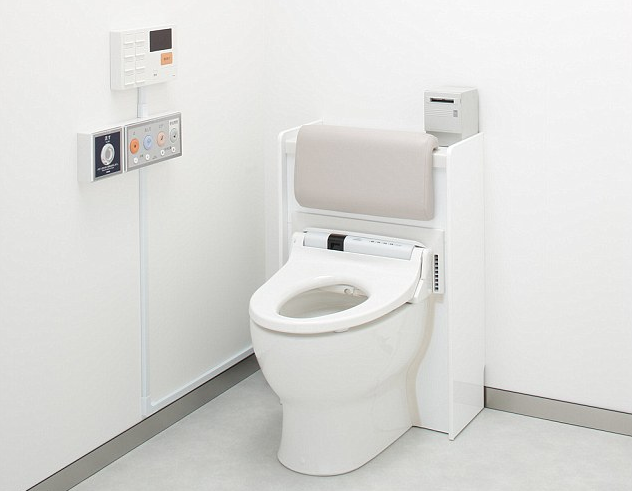Smart toilets can warn of cancer
Sensors mounted in urinals can analyze urine to check for protein and glucose levels, detecting diabetes and cancer early.
The smart toilet was created by scientists at the European Space Agency (ESA) and the Massachusetts Institute of Technology (MIT), USA, in collaboration with sanitation experts, according toDaily Mail.
In addition to detecting fluctuations in protein and glucose levels, sensors in urinals can check for other biochemical markers in urine, thereby providing early warning of cancer or diabetes. The data can be sent to the user's smartphone or family doctors for timely treatment.
 |
Illustration:Daily Mail |
Michael Lindenmayer, health and smart toilet expert at the Toilet Board Alliance, said high-tech toilets offer people a great opportunity to "take greater control of their health".
"People often only see a doctor when they're sick. We don't listen to our bodies enough, while the toilet does more of that. There's a huge amount of health information that goes down the drain every time we flush," Lindenmayer said.
Gastroenterologist Sameer Berry believes that smart toilets will be useful in collecting data on patients with bowel cancer, anal abscesses, etc.
In addition, "smartening" public toilets also helps health officials monitor and predict epidemics, giving them the opportunity to warn early before an outbreak.
Davide Coppola, Director of Space Hygiene at ESA, said that by combining health data from smart sensors in toilets with Earth observation satellite data, we could create a health information system that can prevent epidemics.
“If you have 1,000 smart toilets monitoring specific diseases in an area, you can use spatial data to calculate the likelihood of an epidemic.”
The smart toilet is based on technology used to monitor the health of astronauts in space. The International Space Station (ISS) has tested a device called the Urine Monitoring System, which aims to collect and test the urine of each crew member.
ESA and MIT are looking for toilet companies to help adapt their technology for use in smart toilets.
The goal of the next-generation toilet is to combine technologies into a complete smart toilet. "Users connect their phones to the toilet to receive health information. If something is wrong, they will go to the doctor for further examination," said Lindenmayer.
In addition, Japanese sanitary equipment companies are developing wifi-connected toilets that can measure body mass index (BMI), biochemical components such as sugar, protein, urine temperature, etc. In the US, scientists at Stanford University have developed color-changing toilet paper that can detect signs of urinary tract infections with the help of a smartphone camera.

